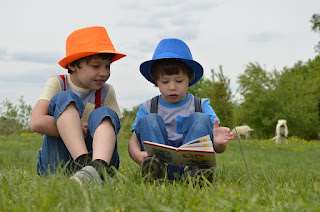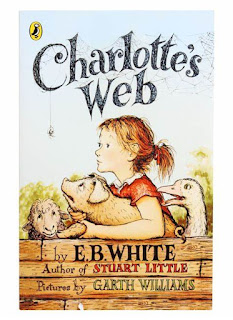I first wrote about ‘discovering’ literature in a book published in the 1990s called ‘Pathways to Literacy’. In it I explained it took me until I was 8 years old before I read my first book. This was in spite of the fact that I’d been able to read since about 4-5 years of age! The first book I truly 'read' was Jules Verne's ‘Twenty Thousand Leagues Under the Sea’. I had read school readers and some school magazine stories, a lot of comics and a couple of editions of Boys Own Annual. But I had never read a novel of my choice. At school, I’d only ever read for functional purposes.
But that changed when I was given Twenty Thousand Leagues Under the Sea at my Father’s Miners’ Trade Union Christmas party. It was this book that taught me things about reading I'd never known before. As I wrote in ‘Pathways to Literacy’:
“I lived through this book" (to use Louise Rosenblatt's well known phrase). I could almost smell the leather in Captain Nemo's Cabin. I felt the panic of the sailors on the wooden hulled ships at the terrifying sight of a glowing 'eyed' monster hurtling towards them in the darkness. I also felt deep compassion for the people inside doomed to death.”
There was a sense of excitement and commitment to the text evoked by this story. This had not been generated by my school readers. The formal reading in my first 2-3 years at school had a range of banal plots, impoverished language and weak characterization. The stories were written to teach me, rather than being provided to engage, enrich and transform me through the power of story.
I believe that ‘first’ book changed me as a reader, turning me from a passive consumer of text into an active meaning maker. In response to the book I was 'creating' text in partnership with the author! I was to read the book many times and eventually others as well.
Years later, as a young teacher I was to observe many children who like me as a young child, never read books except to complete a school task. I helped to run a community literacy centre for a number of years where parents would bring their children to me for help with reading. I discovered something interesting. Virtually all the children who had reading problems, behaved as if they were reading textbooks.
Like me as a child, “… they were mere consumers of other people's texts, not creators of meaning in the fullest sense of the word. The attention of the readers was often focused on the surface features of the words in the text, and not necessarily the construction of meaning.”
As teachers, our definition of what literature is, also has an effect on the way we value and use literature in classrooms. For example, some teachers see it is as a vehicle for sustaining our cultural heritage. For those who see literature in this way, it is the means for ensuring that all students have access to an assumed central and essential cultural knowledge, based on an exclusive cannon of special literature. Other teachers see literature as the provider of significant experiences which are seen as central to the social fabric of family life.
While one cannot deny that literature also fulfills these functions, each misses the point that literature is a living tapestry of yesterday, today and tomorrow. It sustains, enriches and sometimes rebukes the cultural practices of our day.
Literature's potential
There are many who are locked within their narrow and limited conceptualizations of what literacy and literature are, and hence they fail to identify all that they can offer. Literature is not just about story, it is about life, and one's world. In my book, I suggested that literature can fulfill many complex functions. It can act as:
• a mirror to enable readers to reflect on life problems and circumstances;
• a source of knowledge;
• a source of ideological challenge;
• a lens to peer into the past, and the future;
• a vehicle to other places;
• a means to reflect on inner struggles;
• an introduction to the realities of life and death; and
• a vehicle for raising and discussing social issues. (‘Pathways to Literacy’ T.H. Cairney)
Most books offer the potential to address many of these functions at once. For example, Charlotte's Web (E.B.White) simultaneously offers new knowledge about spiders and the animal world, addresses the complex issue of dying, and deals with many elements of the human condition, including love and companionship.
In short, literature offers "endless possibilities" for readers to explore their world and learn from it, to enter "other worlds" and to engage in meaning making (Cairney, 1990).



No comments:
Post a Comment